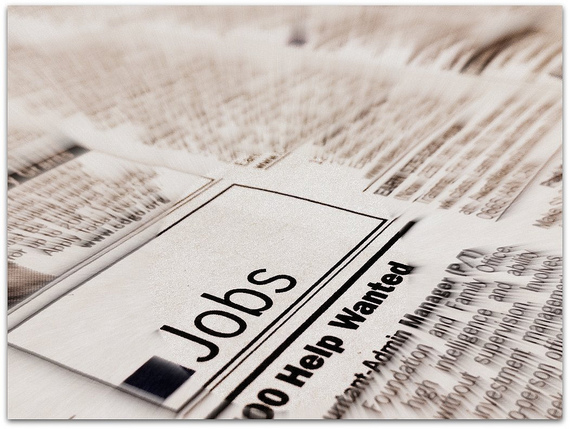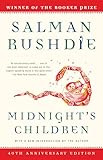
When I graduated with my MFA earlier this year, I routinely fielded the various versions of What are you doing next? Of course, what people really wanted to know was what I was going to do for a job. Frankly, I’d never considered doing anything other than what I had been doing — planning and creating communication packages at the creative agency where I’ve worked for the last decade. The guys in Mad Men did it. So could I.
High school teacher and poet Nick Ripatrazone recently wrote an article encouraging MFA graduates to consider careers outside the traditional adjunct faculty route — for better pay, better benefits, and better peace of mind. He made a great case for teaching high school. “You have,” he writes, “other options.”
You absolutely do. Teaching high school is just one of them. Working at a creative agency is another.


 Agency employees have long been known to write stories and novels on the side. In fact, it used to be a kind of trend — at least in the middle of the 2oth century. Familiars like Joseph Heller (Catch-22), Salman Rushdie (Midnight’s Children) and F. Scott Fitzgerald (The Great Gatsby) worked at agencies and then wrote in their spare hours. Heller continued to work after Catch-22 was published. Even more recently, writers like Joshua Ferris (Then We Came to the End) and Rosecrans Baldwin (Paris, I Love You But You’re Bringing Me Down) have used the agency experience as the basis for books. Augusten Burroughs (Running with Scissors) wrote his first book while still in the ad agency world. Suzanne Finnamore did the same (Split).
Agency employees have long been known to write stories and novels on the side. In fact, it used to be a kind of trend — at least in the middle of the 2oth century. Familiars like Joseph Heller (Catch-22), Salman Rushdie (Midnight’s Children) and F. Scott Fitzgerald (The Great Gatsby) worked at agencies and then wrote in their spare hours. Heller continued to work after Catch-22 was published. Even more recently, writers like Joshua Ferris (Then We Came to the End) and Rosecrans Baldwin (Paris, I Love You But You’re Bringing Me Down) have used the agency experience as the basis for books. Augusten Burroughs (Running with Scissors) wrote his first book while still in the ad agency world. Suzanne Finnamore did the same (Split).
Today’s creative agencies do a lot of different things: advertising (the Mad Men kind), publications, websites, branding, or communication strategies. Usually, an agency has a niche, but some choose to combine it all. Mine happens to do a little bit of everything so I’ve been able to interview illustrators at Disney, write copy for major fundraising campaigns, and research Africa’s best new authors.
Though agency outputs are different from literary outputs, there’s quite a bit that can be gleaned from the industry. And not just how to drink multiple Old Fashioneds. You don’t even have to be like me, who was somewhat established before I took some time off for my MFA. You can be freshly diploma’ed and still a strong candidate:
- You know how to write a sentence. A really good sentence. You’d be surprised at how many people can’t do that. Clients are constantly telling us they’ll handle the writing for a specific project. More often than not, it’s wordy and dry and confusing and they’ll come back and ask us for help.
- You can articulate why certain ideas work and others don’t. Writing workshops have provided great training with this. You can’t get away with saying: Oh, I just don’t like that. You have to figure out why and then communicate it to your fellow writer. That’s hard work and an extremely valuable resource for employers.
- You can think outside of a box. You may take this skill for granted, but how often do you have a character stuck in a corner that you must reconcile? Or you’ve got a line in a poem that you really love, you’re just not sure where to go next? It’s uncomfortable but somewhat familiar terrain for writers — figuring out solutions to complicated situations.
With those skills in-hand and a few others, here’s what could be in it for you should you decide to look into agency work — for more than just paid vacations and health insurance.
- Jobs: Depending on what you are willing to do, a look at job listings sites shows there are lots of opportunities. Salaries will vary depending on locations, but the median for entry-level jobs is $30,000-$40,000.
- Editing skills: Salman Rushdie learned to say a lot in a little from writing ad copy: “You have to try to make a very big statement in very few words or very few images and you haven’t much time. All of that is, I feel, very, very useful.”
- Nerve: Stephanie Bane has an MFA and is working on a memoir of her time in the Peace Corps. She also works at an ad agency in Pittsburgh. “I’m impervious to insult,” she says. “Advertising is a team sport. Somebody — or several somebodies — weigh in on every word I write. My ideas are edited, altered or outright rejected on a daily basis. When it comes to seeking publication, rejection letters still sting, but my day job makes it easy for me to treat them as a routine part of the business.
- Imagination: Joseph Heller felt he’d been trained by the limitations he learned in his copywriting work. “They [ideas] come to me in the course of a sort of controlled daydream, a directed reverie. It may have something to do with the disciplines of writing advertising copy (which I did for a number of years), where the limitations involved provide a considerable spur to the imagination. There’s an essay of T. S. Eliot’s in which he praises the disciplines of writing, claiming that if one is forced to write within a certain framework, the imagination is taxed to its utmost and will produce its richest ideas. Given total freedom, however, the chances are good that the work will sprawl.”
- Publishing: Most likely, you’ll get something published in the agency world far sooner than you will in book publishing. Even if it’s just the Dental Association of America reading it, it’s still out there. (And when you come home to yet another rejection from The New Yorker, that’ll matter. A little.)
- Discipline: Balancing a 40-hour work week and a writing life takes dedication. Another thing Rushdie tucked under his belt from the advertising world: “…it taught me to write like a job…. You can’t afford temperament, you can’t afford days of creative anguish; you have to sit there and do your job and you have to do it like a job, get it done on time and well. I now write exactly like that. I write like a job. I sit down in the morning and I do it. And I don’t miss deadlines.” Anastasia Edel is a producer at Frog Design in San Francisco. She’s also finishing up her MFA in fiction, which makes for a very busy life. “When you really want something you find the time,” she says. She writes between the hours of 9 p.m. and 2 a.m.
- Exposure: You’ll likely interact with a lot of different artists — other kinds of writers; designers who will show you a whole new way of looking at the world and will likely give you expensive taste in almost everything; photographers who can argue that a picture may very well be worth 1,000 words (and you might be compelled, at times, to agree). There’s an energy that can come from this kind of community. Edel recently collaborated with a colleague to lead a creative meeting that explored the heart of the creative process. “If there is a way you can leverage what you’re studying with your lifestyle,” she says, “you’ll get energy from that.”
The agency atmosphere isn’t for everyone. There are bad days and good days, as with any job. You have to set boundaries. You have to work hard. You have to play well with others. And in order to write you have to say no to some things (like going out with your new colleagues for drinks after work) and yes to others (like getting up several hours before work to write). But you just might find that the skills you honed while pursuing your MFA have a much wider range than you ever imagined.
Image Credit: Flickr/photologue_np








